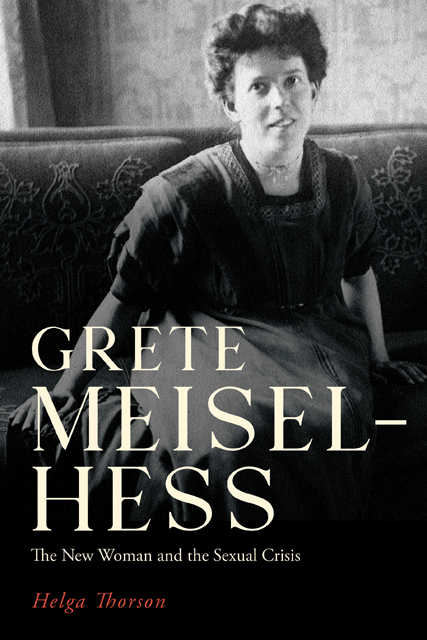Book contents
- Frontmatter
- Dedication
- Contents
- List of Illustrations
- Acknowledgments
- List of Abbreviations
- Introduction: Breaking with the Past, Forging the Future
- 1 The New Woman of the Early Twentieth Century
- 2 Feminism and Jewishness in Viennese Literary Modernism
- 3 Theorizing the Sexual Crisis through Journalism and Sexology
- 4 Effecting Change through Literature: Die Intellektuellen (1911)
- 5 Sexual Sociology during the First World War
- Conclusion: Living the Sexual Crisis
- Bibliography
- Index
4 - Effecting Change through Literature: Die Intellektuellen (1911)
Published online by Cambridge University Press: 11 January 2023
- Frontmatter
- Dedication
- Contents
- List of Illustrations
- Acknowledgments
- List of Abbreviations
- Introduction: Breaking with the Past, Forging the Future
- 1 The New Woman of the Early Twentieth Century
- 2 Feminism and Jewishness in Viennese Literary Modernism
- 3 Theorizing the Sexual Crisis through Journalism and Sexology
- 4 Effecting Change through Literature: Die Intellektuellen (1911)
- 5 Sexual Sociology during the First World War
- Conclusion: Living the Sexual Crisis
- Bibliography
- Index
Summary
Meisel-Hess’s sexological treatise Die sexuelle Krise: Eine sozialpsychologische Untersuchung (The Sexual Crisis: A Social-Psychological Investigation, 1909) not only locates the New Woman at the forefront of societal transformation but also characterizes the New Woman writer as a positive instigator of change through her ability to envision the world differently. This essential and uncompromising envisaging, according to Meisel-Hess, includes the representation of women in fiction: “Die Literatur, die vorbildlich und formenbildend auf das Leben wirkt (voraus wirkt), wird eingedenk eines neuen elementaren und dennoch durchaus lebensfördernden Frauentypes, der schon da ist und noch deutlicher werden wird, es lernen müssen, den Erdgeist seiner gefährlichsten Requisiten zu entkleiden und ihm die bauende Kraft des Weibes zuzugestehen” (SK 148; Literature, which exercises a constructive or formative influence upon life, must learn from the study of a new type of woman, elemental and yet life-giving, a type that already exists and is destined soon to become more pronounced—must learn to divest the earth-spirit of its most dangerous qualities and to endow it with all the constructive energies of womanhood: SC 139; translation modified for clarity). These modern depictions of the New Woman in literature, she claims, would challenge and destabilize standard representations of women as either femmes fatales or femmes fragiles and would portray women as “führend, rettend, reinigend” (SK 148; leading, rescuing, purifying).
For Meisel-Hess, it is the ardent woman who is best able to make these substantial, groundbreaking changes in literature and research, through her ability to anticipate what is to come: “Das inbrünstige Weib in Kunst und Forschung ist Trägerin und Deuterin der Ahnung” (SK 272; In art and in research the ardent woman is the receiver and interpreter of intuitions; SC 240). In Die sexuelle Krise, Meisel-Hess not only sets out to influence the emerging interdisciplinary field of sexual science through her feminist interventions but also reserves space in her sexological study for feminist literary analyses. She writes that literature by women has often led to important societal reckonings, citing Harriet Beecher Stowe’s Uncle Tom’s Cabin (1852) and Nobel Laureate Bertha von Suttner’s Die Waffen nieder (1889, Lay Down Your Arms, 1892) as catalysts for the anti-slavery movement and the international peace movement respectively (SK 269).
- Type
- Chapter
- Information
- Grete Meisel-HessThe New Woman and the Sexual Crisis, pp. 138 - 177Publisher: Boydell & BrewerPrint publication year: 2022



